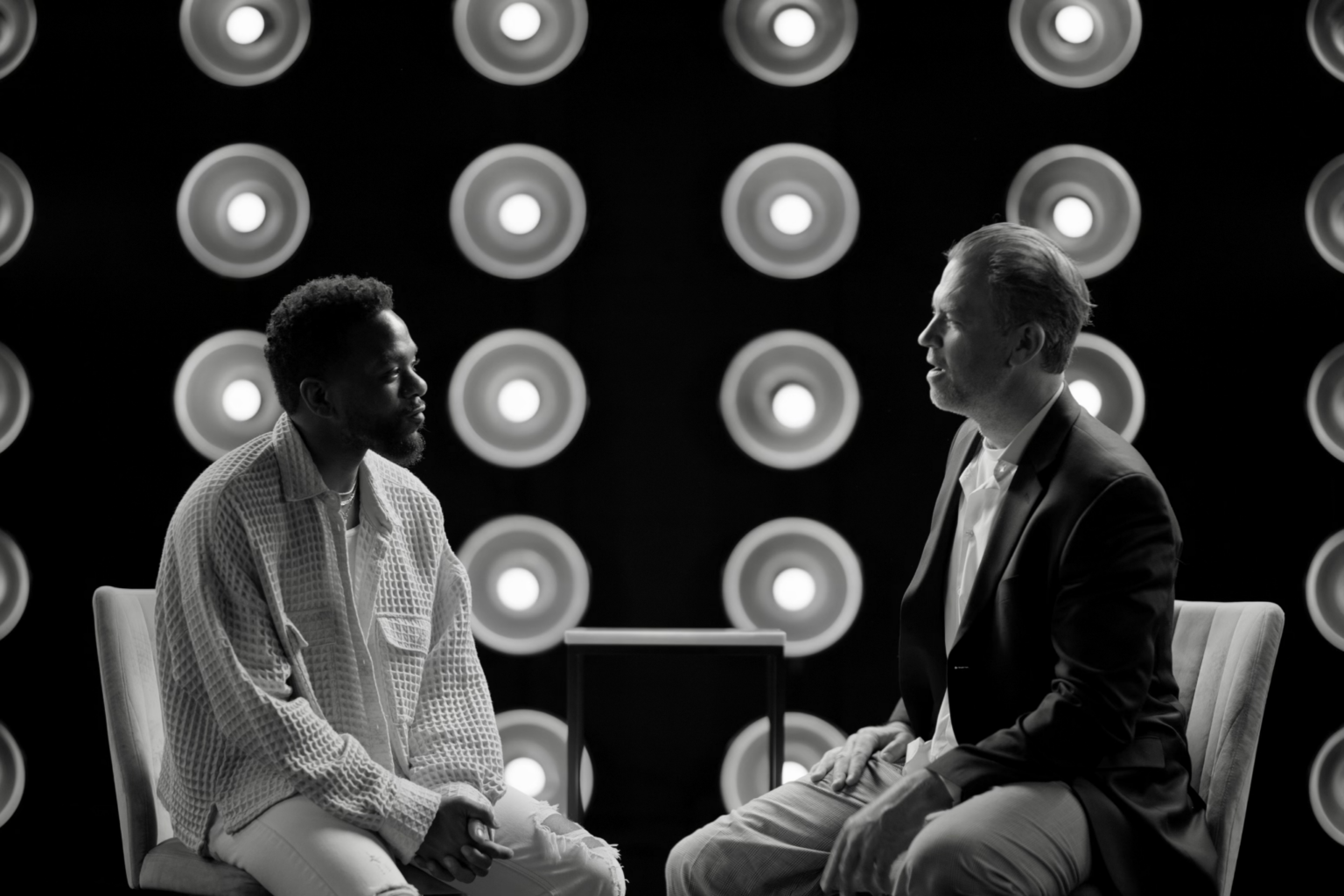
A Review of Anant Mehra’s “A Fraudulent Existence”
“A Fraudulent Existence” is a 16-minute tragic-comedy short film by writer-director Anant Mehra that centers on a potentially career-defining interview for an artist in the music industry. The film doesn’t concern itself with a typical representation of a high-stakes moment; it throws viewers into an unexpected emotional and intellectual whirlpool, heightening every exciting, insecure, and unsure moment its protagonist experiences.
The narrative follows Vaughn, played by Jaylien Wesley, an artist who seems desperate to earn critical validation with his newly released 2nd studio album. In an industry fraught with cutthroat competition and conflict between artistic vision and commercial demand, Mehra subtly, and sometimes masterfully, spotlights the incentives and price artists pay for inauthenticity. The film intentionally pushes complex dialogue between the interviewer and interviewee as if to make audiences resonate with the undercurrent of anxiety authentic to Vaughn. As viewers, people may empathize with his battles, both rooting for him and being frustrated by his choices, reflecting on personal experiences of sacrificing internal fulfilment for external validation.
Wesley, better known as JAYLIEN in the real-life world of music, is not just an actor but a multi-talented singer, songwriter and producer who has worked on hit records with artists like Akon and Will-i-am. His first-hand experience of the music industry seems to enrich the authenticity of his performance. His character draws the audience into nuanced industry interactions, some versions of which Wesley has undoubtedly encountered himself.
One of the most notable elements of the film is the tension between Vaughn and the interviewer, Clementine Laurent — a revered art critic and, at least in Vaughn’s eyes, the ultimate gatekeeper to the sanctum of high art. Their conversation unravels into an electrifyingly tense exchange on art, its creation, and its reception. Played by Peter Larney, Clementine’s questions expose a glaring classism present in this art world, where personal biases and elitist attitudes often overshadow an artist’s singular contributions to their work. As the narrative unfolds, Clementine’s attempts to credit the quality of Vaughn’s music to one of his established producers become more blatant, and Vaughn’s ability to handle this gracefully diminishes, ultimately resulting in a chaotic confrontation at the film’s climax.
Chloe, played by Mamé Adjei, a fierce and loyal girlfriend to Vaughn, is a moral presence throughout the film. She defies Clementine’s intellectual elitism, protecting Vaughn’s artistic integrity with a boldness that’s aspirational. The confrontation between Chloe and Clementine isn’t just a dramatic peak in the film; it’s a vivid demonstration of the need for respect, understanding, and fair assessment in the creative world.
Mehra’s climax in “A Fraudulent Existence” truly brings the narrative full circle. He opens and closes his film on an image of Vaughn’s album cover, and at the conclusion, it morphs into the cover image of Clementine’s story, with a headline that credits one of Vaughn’s musical collaborators for its success. The sight of Vaughn’s work being attributed to someone else delivers a poignant commentary on the industry’s inherent biases. All in all, the short film paints a bold and timely picture of a creative industry that doesn’t credit its artists enough.
However, the portrayal is not without its shortcomings. The pacing, for instance, could have been more consistent. There are stretches in the film where the narrative seems to meander, resulting in moments that feel overdrawn and somewhat dilute the overall intensity. Additionally, while the characters are deftly etched out, with each personality shining through, the plot would have benefited from further exploration of their motivations.
Despite these limitations, “A Fraudulent Existence” is a film that strikes a chord. It serves as a mirror held up to the music industry, reflecting both its opportunity and ruthlessness. The film is a sobering and valuable watch for artists, critics, and audiences, pushing people to reflect on the elusive balance between personal passion and external validation.
The film is set to enter the film festival circuit worldwide.



